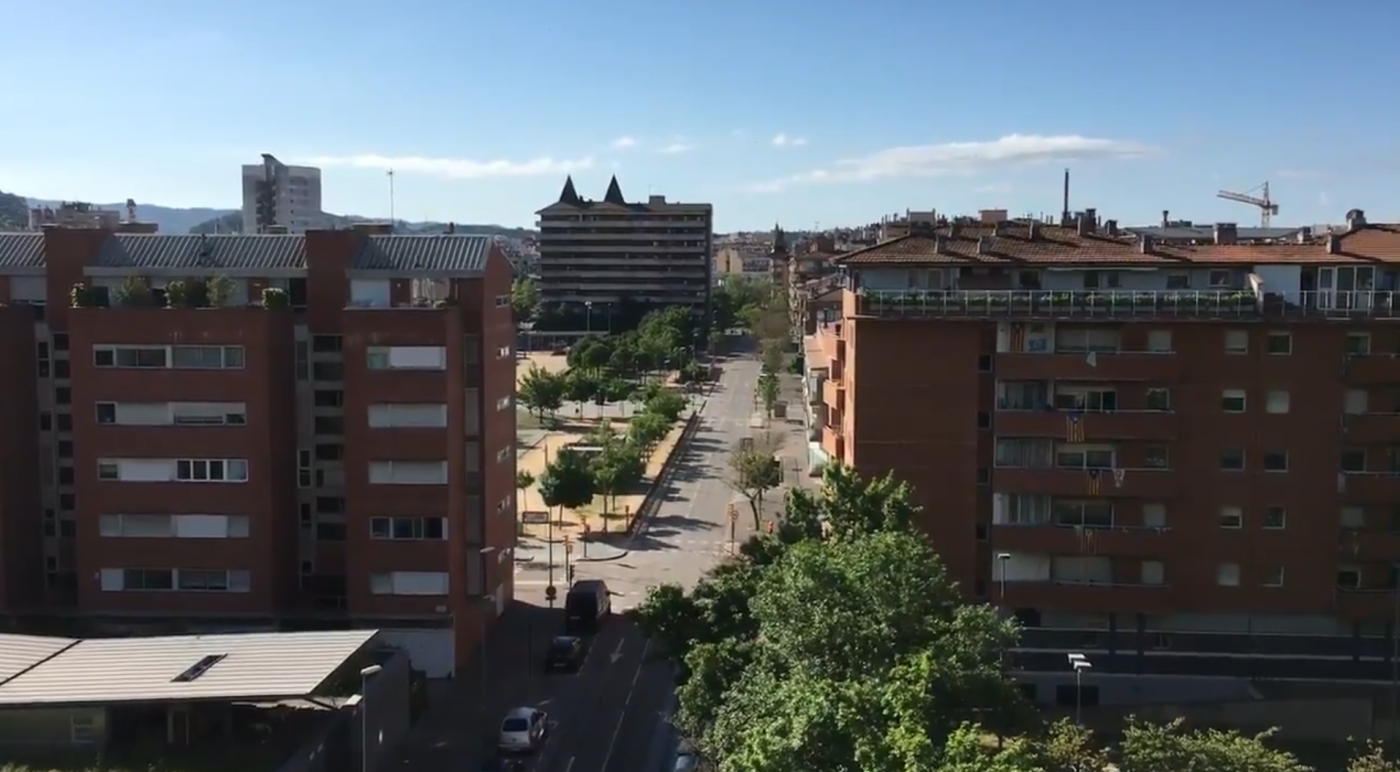The COVID-19 pandemic, and the need for containment to fight it, has changed the established social normality at all levels. For instance, in the usual acoustic order, in the noises that make up the ordinary soundscape. In this sense, the Research Group on Media Technologies (GTM) of La Salle-URL and the Barcelona Institute for Global Health (ISGlobal) have launched a pioneering study, which aims to serve as testimony to the impact that confinement has had on the perception of citizens on the sound environment of their homes. The aim of the study is to collect samples – by recording videos from balconies and answering to a questionnaire - that will be used to analyze the noise in the environment and the perception of Catalan citizens in the variation in their soundscape.
Once the samples have been collected, the project aims to draw up a map of Catalonia that defines the territory's soundscape. In this sense, the intention is to obtain as much evidence as possible to draw up an extensive and accurate drawing, with evidence from the largest number of municipalities in Catalonia, to compare data, to establish differences and to obtain more conclusions. That is why it is important to locate each of the questionnaires and videos that are sent, to project these samples on the map. "This documentation will allow us to make an objective map of the soundscape of Catalonia, prioritizing the audiovisual record in an exceptional moment such as these weeks of confinement", explains Dr. Rosa Maria Alsina, head of the project. "This information will also allow us to study how we perceive the sound environment, and whether this perception has changed during the confinement by the COVID-19 pandemic", adds Dr. Maria Foraster, co-leader of the project.
The research team that has designed and coordinated the study, in addition to Dr. Alsina, is made up of Dr. Roger Mallol, Marc Freixes and Ferran Orga, all from the GTM of La Salle-URL, and Dr. Maria Foraster from ISGlobal. The research is structured around two axes, as Rosa Maria Alsina explains: "The first is the collection of videos and the second is the brief questionnaire that the participants answer about their perception of the sound environment in their homes before and during the confinement, placing emphasis on sounds that are heard on a regular basis". The videos that are collected have a minimum duration of 30 seconds and are recorded from the balconies and windows of homes. The questionnaire serves as a more sensitive and personal perception element. "This information, which strictly depends on the sensations of the citizens - also conditioned by the same confinement - will be analyzed together with the audiovisual samples to draw conclusions", explains Dr. Alsina.
Citizen science
The study ‘Sounds on the balcony: soundscape of confinement in Catalonia’ seeks to involve Catalan citizens in the investigation of a phenomenon that has been modified due to the confinement condition. In this sense, the initiative is linked to citizen science, which seeks the active participation of the non-specialized public together with scientists, researchers and professionals in the subject under investigation. Citizen science is the framework for conducting the study, and invites people to participate in research activities providing value to help them acquire new knowledge and skills.
In this sense, the study calls for the collaboration of citizens to collect evidence, but also seeks to provide knowledge to the participants, making them feel part of a unique research in Catalonia. Citizen science, according to the experts, provides people with personal knowledge - in a practical sense and also with general culture. It also enables them to improve their attention to detail, adopting a scientific mindset that helps them appreciate the environment, and offers the intangible reward of knowing that they are contributing to scientific research that can help them better understand the environment in which they live. And it is also the best way to show that science is also fun, by breaking down negative preconceptions.
The questionnaire and the video recording can be carried out by clicking in the following link: https://enquestes.salleurl.edu/index.php/1000

